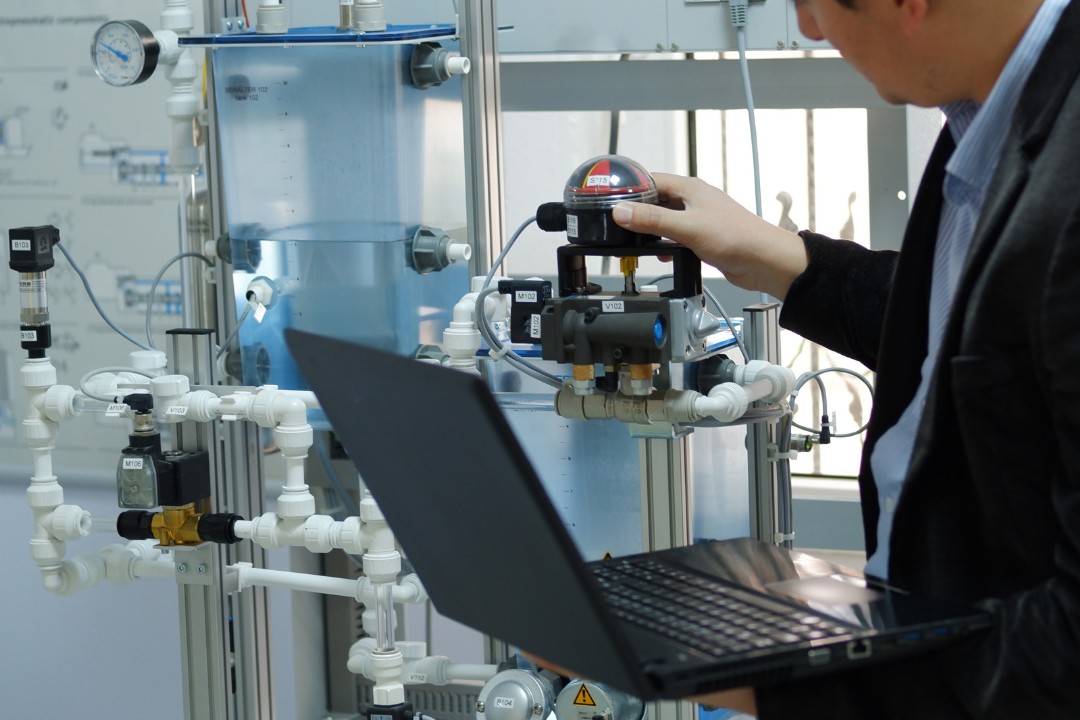Why Is Being An Analog Engineer So Important In The Digital Age?

In a world increasingly dominated by digital technologies, the role of the analog design engineer remains vital. While digital systems offer unparalleled precision and versatility, the foundation of these systems is often rooted in analogue engineering. Here's why this discipline continues to be indispensable in the electronics and high-tech arena.
Bridging the Physical and Digital Worlds
The Interface with Reality:
Analogue signals are continuous and can represent real-world phenomena more accurately than digital signals, which are discrete. Everything we experience in the physical world—sound, light, temperature, position, or pressure—exists in analogue form. Analogue engineers design the sensors and electronic circuits that convert these physical phenomena into digital data, making them comprehensible to digital systems.
Precision and Efficiency in Conversion:
High-quality analogue-to-digital converters (ADCs) and digital-to-analogue converters (DACs) are crucial for accurate data representation. Analogue engineers ensure these converters operate efficiently, with minimal loss of information, enabling precise data processing and communication.
Signal Conditioning and Processing:
Before digital systems can process signals, they often need conditioning—amplification, filtering, or modulation. Analog engineers design circuits that prepare these signals, ensuring they are clean and robust enough for digital processing.
Enhancing Digital Systems
Power Management:
Analog engineers play a crucial role in designing power management systems. From power supplies to voltage regulators, they ensure that electronic devices operate efficiently and reliably, with optimal power consumption and heat dissipation.
Overcoming Physical Limitations:
As digital systems shrink and speeds increase, they face physical limitations like noise and signal integrity issues. Analogue engineers develop solutions to mitigate these problems, ensuring that digital systems can continue to scale and improve in performance.
Key Sectors and Applications
Automotive Industry:
The rise of electric vehicles (EVs) has created a pressing need for high-power, high-efficiency DC-DC converters and AC-DC chargers. Designing these analogue power electronics requires a deep understanding of circuit theory, control systems, and power management techniques. Analogue engineers optimise converter topologies (buck, half-bridge, boost, flyback, etc), electronic component selection, and control algorithms to minimise losses and ensure reliable operation under harsh automotive conditions.
Industrial Automation:
The proliferation of smart sensors and actuators is enabling a new era of highly efficient, adaptable manufacturing. These intelligent devices rely on precision analog front-ends to accurately measure physical quantities like temperature, pressure, and vibration. Analog engineers are crucial in designing low-noise amplifiers, filters, and data converters that can extract meaningful signals from noisy environments.
Wireless Communications:
The ongoing rollout of 5G networks presents a host of exciting challenges for RF analogue designers. The higher frequencies and wider bandwidths of 5G require innovative antenna arrays, power amplifiers, and beamforming techniques. Analogue engineers push the boundaries of gallium nitride (GaN) and silicon germanium (SiGe) technologies to deliver the performance and efficiency needed for dense urban deployments.
Consumer Electronics:
The explosive growth of wireless earbuds and headphones demands exquisite analogue design skill to achieve high-fidelity sound reproduction, robust connectivity, and long battery life. Analog engineers craft ultra-low-power audio amplifiers, high-efficiency power management ICs, and precise clock generation circuits.
Artificial Intelligence:
The increasing integration of artificial intelligence (AI) into edge devices is opening up new frontiers for analogue innovation. While much of the focus has been on digital accelerators for neural networks, analogue computing techniques show immense promise for ultra-low-power AI inference. By exploiting the inherent nonlinearities and dynamics of analogue circuits, it’s possible to implement complex machine learning algorithms with a fraction of the energy consumption of digital approaches.
Internet of Things (IoT):
The IoT is expected to connect billions of devices across every industry, from agriculture and healthcare to transportation and energy. Each of these devices will require some form of analogue sensing, signal conditioning, wireless connectivity, and power management. Analogue engineers will be at the forefront of designing the next generation of ultra-low-power, highly integrated IoT nodes.
Sustainability:
The push towards greater sustainability and energy efficiency will drive ongoing innovation in analogue power electronics. Whether it’s developing more efficient solar inverters, smart grid control systems, or wireless charging solutions, analogue engineers will play a pivotal role in the transition to a cleaner, greener future.
Conclusion:
In conclusion, the digital revolution is not diminishing the importance of analog engineering – it’s amplifying it. As we continue to push the boundaries of what's possible with electronics, the demand for skilled analogue engineers will only intensify. So, if you're considering a career in electronic engineering, don’t overlook the immense potential of the analogue domain as this type of career keeps employees on their toes and challenges them as technology constantly develops.
Redline changes lives every day. Redline Group, your trusted recruitment partner, is at the forefront of knowledge-led recruitment services across the European technology arena. Clients and candidates trust us for our deep market understanding and professional approach. Explore what our clients and candidates say on Google and get in touch for all your talent acquisition needs. Call 01582 450054 or email info@RedlineGroup.com.

